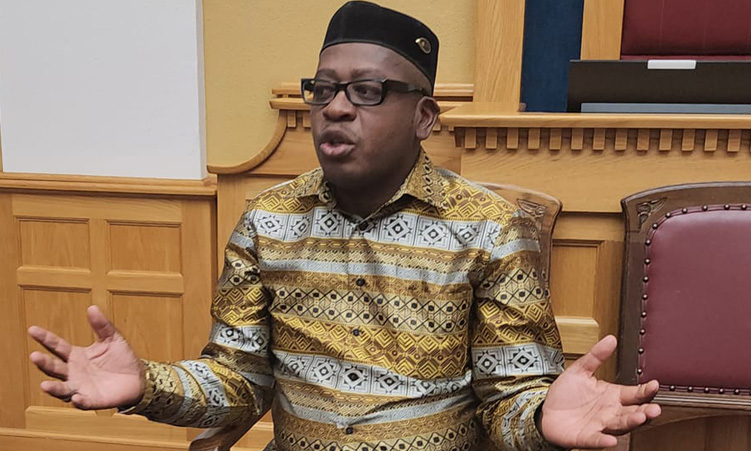Donald Trump took centre stage globally on 2 April when he unveiled an executive order imposing ‘reciprocal’ tariffs on trading partners of the United States (US), including Namibia.
The US president described it as “one of the most important days in American history” and a “declaration of economic independence”.
His controversial move sent shock waves through the global economy, raising urgent questions about its implications.
What happens next? And how will it disrupt global trade markets? Let’s take a closer look at the potential outcome of what the Trump administration calls ‘Liberation Day’.
HOW DOES IT WORK?
To fully grasp the impact of this decision, we need to understand what a tariff is and how it works.
A tariff is a tax imposed by a government on imported goods, typically calculated as a percentage of the product’s value.
The goal is to make foreign goods more expensive, reducing demand for them and giving locally produced goods a competitive edge in the marketplace.
In theory, tariffs benefit domestic industries by encouraging consumers to buy local products instead of foreign alternatives.
At first glance, this might seem beneficial: Goodbye reliance on foreign investment and hello local wealth, right?
Unfortunately, it’s not that simple.
While tariffs may reduce demand for foreign goods, a lack of sufficient local supply could, in turn, drive up prices for domestic goods.
As a result, consumers may end up facing higher prices across the board, regardless of whether a product is imported or locally produced, ultimately affecting their buying power.
UNCERTAINTIES
Some argue that tariffs create employment opportunities by protecting domestic industries.
While it’s true that some jobs might be created in certain sectors, the overall effect on the economy can be more complicated.
Higher living costs, inefficiencies in resource allocation and the potential for retaliatory tariffs from other countries could offset potential benefits.
Moreover, the global nature of modern supply chains means tariffs could disrupt many industries that rely on imported materials or products, leading to broader economic consequences.
Trump has also proposed using the revenue generated from these tariffs to offset tax cuts, with the aim of addressing the US federal budget deficit.
The idea is that the additional funds could help support his broader economic agenda.
While this could provide some short-term relief for the US economy, the long-term effects are uncertain.
The global trade system could become more fragmented and diplomatic relations with key trading partners could suffer.
GEOPOLITICAL
IMPLICATIONS
It also raises the question: Are tariffs truly about benefiting American citizens or are they part of a broader geopolitical strategy to declare US dominance on the global stage?
It is a move that will undoubtedly have far-reaching consequences, especially for major trading nations like China.
For smaller countries like Namibia, the imposition of a 21% tariff on imports to the US may force a reassessment of trade relationships.
It could also affect Namibia’s participation in the African Growth and Opportunity Act, a trade agreement which offers preferential access to US markets.
While this is a significant challenge, our economy is diverse.
It may create short-term setbacks but it is not a fatal blow. We can recover and adapt effectively.
Perhaps the most pressing question is how other global superpowers will respond.
Will the US succeed in boosting domestic production, reducing its trade deficit and creating jobs?
Or will this move trigger a global trade war that drives up prices and the cost of living for consumers worldwide?
The outcome remains uncertain – only time will tell.
- Aishe-lee Ashipala is an accounting student at the University of Namibia; ashipalaaishelee@gmail.com
Stay informed with The Namibian – your source for credible journalism. Get in-depth reporting and opinions for
only N$85 a month. Invest in journalism, invest in democracy –
Subscribe Now!










